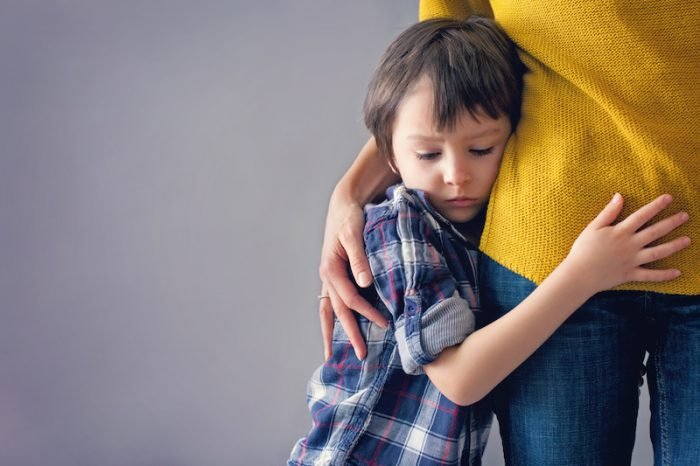Common Signs of Anxiety in Children
April 30, 2021

Anxiety is a natural part of life that can affect both children and adults. It’s not uncommon for young children to be afraid of the dark, or be worried about making friends or starting a new school. However, sometimes, normal childhood anxiety can develop into a more serious anxiety disorder. Mental Health Awareness Month is happening in May, providing a great opportunity to learn more about issues like anxiety in children. As a parent, here’s what you need to know including common signs of anxiety disorder in children.
What is an anxiety disorder?
Anxiety disorders are defined as causing extreme fear and worry, and changes in a child’s behavior, sleep, eating or mood. According to the American Academy of Pediatrics, they are the most common type of childhood mental health disorder, affecting approximately 8% of all children and adolescents.
The most common types of anxiety disorders that affect youth include:
- Generalized anxiety disorder
- Panic disorder
- Separation anxiety disorder
- Phobic disorders
- Social phobia (social anxiety disorder)
An anxiety disorder, by contrast, can be incapacitating. It is an illness, one that frequently runs in families. The anxiety may be overwhelming—and at times terrifying—or it may be relatively mild but incessant, often with no apparent cause. A young person has nearly a one-in-seven chance of developing an anxiety disorder, which is the most common mental health condition among all age groups.
What are the symptoms?
Compared to normal childhood worries, anxiety disorders can be incapacitating. The anxiety may be overwhelming or at times terrifying. It can also be relatively mild but incessant, often with no apparent cause.
While symptoms may differ depending on your child’s age or the type of anxiety disorder, the most common symptoms include:
- Difficulty sleeping
- Trouble concentrating
- Recurring fears or worries about routine parts of daily life
- Fear of social situations
- Fear of leaving home
- Fear of separation from a loved one
- Refusal to go to school
- Physical symptoms such as headaches or stomach aches
- Avoidance
- Explosive outbursts, common when their fight-or-flight mechanism is triggered
These symptoms can interfere with daily activities including a child’s friendships, life at home and work in school.
What causes anxiety disorders?
There is often not a singular cause for anxiety disorder. In many cases, the disorder is subjective and unique to each child based on his/her personal experiences. Common causes of anxiety disorders in children include:
- Genetics: Children may inherit genes that can make them more prone to develop anxiety. If your child has a family member with an anxiety disorder, they are more likely to have one too.
- Brain chemistry: Genetics influence the way neurotransmitters, or brain chemicals, work. When certain brain chemicals are in short supply or not functioning properly, it can cause anxiety.
- Life experiences: More than 65% of children and adolescents are estimated to experience one or more traumatic life events by age 16. Exposure to violence, physical or sexual abuse, the death of a loved one or a serious illness, can be stressful and difficult for your child to cope with. While in most cases, children are resilient, sometimes life experiences can lead to the development of anxiety or post-traumatic stress disorder.
- Learned behaviors: In cases where genes were not passed on, simply being around someone who is often fearful or anxious can teach a child to also be afraid. These learned behaviors can come from a family member, caregiver, or anyone who is around your child frequently or consistently.
When to seek help
Left untreated, anxiety disorders can increase a child’s risk of academic dysfunction, poor social skills and harmful behaviors such as substance abuse. Children who live with anxiety for an extended period of time without treatment are also more likely to develop anxiety as an adult or depression.
Pediatric hypnosis is one of the very efficient and safe methods to treat anxiety. Call Holly Springs Pediatrics at (919) 249-4700 to schedule an appointment with one of our providers who is trained in this technique.
